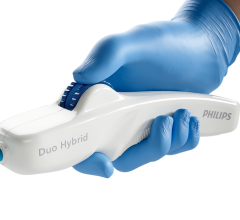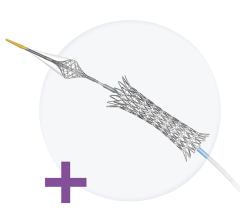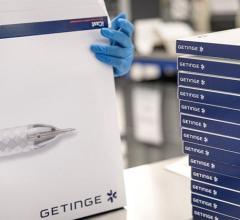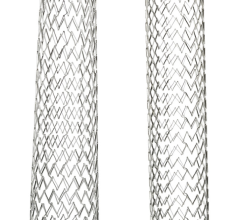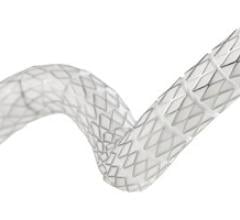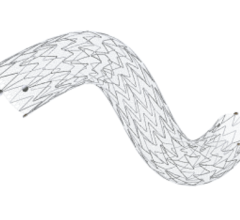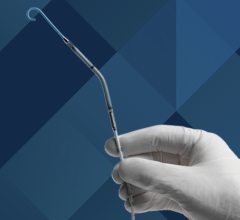
May 13, 2014 — Elixir Medical Corp. received European CE mark approval for its DESolve 100 Novolimus-eluting Bioresorbable Coronary Scaffold System. The world’s first scaffold with a dramatically thinner strut profile of 100 microns is designed to degrade within one year, returning the patients’ coronary vessel ultimately to its normal de novo state while providing market-leading deliverability and conformability. DESolve 100 is designed to make scaffolds more user-friendly, enabling cardiologists to address the needs of a broader patient population.
Like the DESolve scaffold, DESolve 100 is developed from the same proprietary poly-L Lactide (PLLA)-based material that provides optimal strength and support to the artery while delivering the novel anti-proliferative drug, Novolimus. The attributes of the DESolve family of scaffolds include (a) the ability to self-appose to the nominal vessel wall size in cases of mal-apposition; (b) the ability to maintain radial strength and vessel support for the necessary period of vessel healing while degrading within a year; and (c) the ability to have a wide margin of expansion.
“Elixir’s DESolve scaffold is already transforming the treatment of patients with coronary artery disease by providing the optimal vessel support while degrading in about a year leaving the vessel free of a permanent metallic implant,” said Stefan Verheye, M.D., Ph.D., ZNA Middleheim Hospital, Antwerp, Belgium, who treated the first patient with DESolve 100. “The CE mark approval for the breakthrough DESolve 100 scaffold builds on the clinically-proven success of DESolve.”
A total of 126 patients were enrolled at 13 centers in Europe, Brazil and New Zealand in the DESolve Nx pivotal trial, which evaluated the DESolve scaffold system. In addition to quantitative coronary angiography (QCA) follow-up on all patients, a subset of 46 patients underwent intravascular ultrasound (IVUS) and optical coherence tomography (OCT) imaging at baseline and six-month follow-up, demonstrating excellent results. Subsequently, at one year, the DESolve Nx trial demonstrated a low MACE (major adverse cardiac events) rate of 5.69 percent with no definite scaffold thrombosis. Moreover, results using MSCT (multi slice coherence tomography), a noninvasive imaging modality to visualize coronary arteries and the manifestations of coronary artery disease, demonstrated a mean lumen area of 5.5 ± 2.2 mm2 at one year, maintaining the results that were observed at six months using other imaging modalities.
To support the international commercialization and reimbursement of DESolve 100, Elixir has announced a post-approval clinical study of 100 patients with sites in Brazil and Europe. In addition to QCA follow-up on all patients, a subset of patients will undergo IVUS and OCT imaging at baseline and six-month follow-up. All patients will be followed up at one year with annual clinical follow-ups through five years. DESolve 100 will be available in sizes ranging from 2.5 to 3.5 mm. Commercial launch is planned for 2015.
For more information: www.elixirmedical.com


 November 24, 2025
November 24, 2025 


